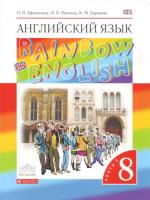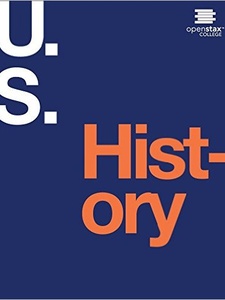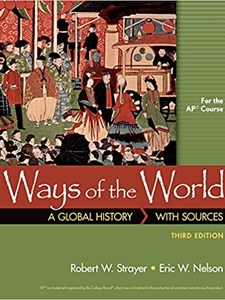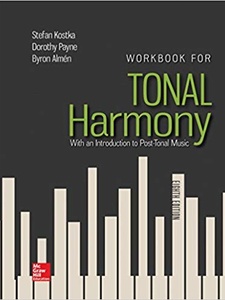Данная контрольная работа предназначена для контроля лексико-грамматических навыков по английскому языку учащихся 8 класса, УМК «Rainbow English» Афанасьевой О.В, Михеевой И.В., Барановой К.М., раздел 2 «Performing Arts: Theatre».
Контрольная работа по английскому языку для 8 класса, УМК Rainbow English»/Афанасьева О.В, Михеева И.В., Баранова К.М., раздел 2 «Performing Arts: Theatre»
Variant I
Choose an odd word out.
1)foyer, gallery, god, stalls;
2) balcony, stage, cruelty, cloakroom;
3) allow, add, hold, alike;
4) receive, refuse, devote, reply;
5)cruel, possible, pianist, classical;
2.Write in English.
Возможная проблема, известный драматург, принимать посетителей, необычная жестокость , oрганизовать вечеринку, центральный (главный) герой фильма , сдавать кровь, соединять два берега реки.
3. Write in one word.
1) A person in a play or film;
2) A drama about sad events;
3) A drama about funny events;
4) A kind of a platform in the theatre where actors perform;
5) The place where people buy tickets;
6) The highest floor in the theatre;
7) The place in the theatre where people can buy food.
4. Fill in the prepositions (at, from, in, of, on, to, with)
1) He said he had bought four tickets… the Bolshoy Theatre.
20 There is no shop … the end of our street.
3) The seats were not … the stalls, they were … the gallery.
4) …the end we decided to buy a nice dress as a present for her.
5) Suddenly a young actress appeared … the stage.
5. Report the sentences
1) Julia said: “My seats are in the stalls”.
2) Tom said;”We are organizing a coffee break”.
3) Terry said:”I am offering you a cup of tea”.
4)Elizabeth said:”I have sent an email to George”.
5)Charles said: “Our team won the first match”.
6) Bob said :”I can do it”.
Variant II
1. Choose an odd word out.
1) impossible, previous, safe, ticket;
2) blood, character, scenery, willingly;
3) circle, curtain, entertainment, previously;
4) usher, theatregoer, elegance, pianist;
5) pianist, character, dramatist, preference.
2.Write in English.
Главный герой, новое развлечение, получать подарки, разрешить сделать что-либо, держать сумку под мышкой, необычное развлечение, обдумывать план, преданные друзья, выглядеть похоже, предложить чашку чая.
3.Write in one word.
1)The place in the theatre where musicians sit and play;
2)The place in the theatre where people leave their coats;
3) The place in the theatre where people come together and talk;
4) A person in a play or film.
5) The place where people buy tickets;
6) The highest floor in the theatre;
7) The place in the theatre where people can buy food.
4. Fill in the prepositions (at, from, in, of, on, to, with)
1) He bought two tickets … ”The Sounds of Music”.
2)At the theatre people leave their coats … the cloakroom.
3(What did he write … the end of his letter?
4) …. the end we decided to stage the play “Romeo and Juliet” by Shakespeare.
5)The actors appeared … the stage.
5. Report the sentences
1)_Peter said:»We are near the orchestra pit”.
2) The girls said:”We are really enjoying the show”.
3) Jim said: “I am connecting the two lines’.
4) James said:”We have left our opera glasses at home”.
5) Emoly said: ”We met at the box office”.
Keys
Variant I
Ex.1: 1) god, 2) cruelty, 3) hold , 4) devote ,5) pianist. .
Ex.2: a possible problem, a well-known dramatist/playwright, to receive visitors, unusual cruelty, to organize a party, to give blood, to connect two banks of the river.
Ex.3: 1) a character, 2) a tragedy,3) a comedy, 4) a stage , 5) a ticket office , 6) a gallery, 7) a buffet.
Ex.4: 1) to, 2) at, 3) in, in , 4) at 5) on.
Ex.5: 1) Julia said (that) her seats were in the stalls.2) Tom said (that) they were organizing a coffee break.3) Terry said (that) he was offering me a cup of tea.4) Charles said (that) their team had won the first match.5) Tom said (that) he could do it.
Variant II
Ex.1:1 1) a ticket , 2) willingly, 3) previously, 4) elegance 5) preference.
Ex.2: a central character, new entertainment, to receive presents/gift, to allow to do smth., to hold a handbag under one’s arm, unusual entertainment, to consider a plan, devoted friends , to look alike, to offer a cup of tea.
Ex.3: 1) orchestra pit, 2) a cloakroom, 3) a foyer, 4) a character, 5) a ticket office, 6) a gallery, 7) a buffet.
Ex.4: 1) to, 1) at, 3) at, 4) in, 5) on.
Ex.5: 1) Peter said (that) they were near the orchestra pit.
2) The girls said (that) they were really enjoying the show.
3) Jim said n (that) he was connecting the two lines.
4) James said (that) they had left our opera glasses at home.
5) Emily said (that) they had met at the box office.
Read the text “The History of Entertainment” again and say the same in one word.
Example: A theatre or a film show, a concert etc − entertainment.
1) Belonging to the time before people began to write down their history.
2) Belonging to the time of very long ago.
3) A play for acting.
4) A group of people singing together.
5) Talk between two people, often in films or plays.
6) A person in a play, film or story.
7) A drama about sad events with a sad ending.
8) A show with performances by acrobats, clowns and animals, often travelling from place to place.
9) The period between the 11th and 15th centuries in Europe.
10) A writer working for the theatre.
11) People watching or listening to a performance.
reshalka.com
ГДЗ Английский язык 8 класс (часть 1) Афанасьева. UNIT 2. Step 2. Номер №5
Решение
Перевод задания
Прочтите текст «История развлечений» еще раз и скажите то же самое одним словом.
Пример: Театр или кинопоказ, концерт и т. д. − развлечение.
1) Принадлежащий к тому времени, когда люди не начали записывать свою историю.
2) Принадлежность к очень давним временам.
3) Спектакль для актерского мастерства.
4) Группа людей, поющих вместе.
5) Разговор между двумя людьми, часто в фильмах или пьесах.
6) Человек из пьесы, фильма или рассказа.
7) Драма о печальных событиях с печальным финалом.
8) Шоу с выступлениями акробатов, клоунов и животных, часто путешествующих с места на место.
9) Период между XI и XV веками в Европе.
10) Писатель, работающий в театре.
11) Люди смотрят или слушают представление.
ОТВЕТ
1) Belonging to the time before people began to write down their history − prehistoric.
2) Belonging to the time of very long ago − ancient.
3) A play for acting − a drama.
4) A group of people singing together − a chorus.
5) Talk between two people, often in films or plays − a dialogue.
6) A person in a play, film or story − a character.
7) A drama about sad events with a sad ending − a tragedy.
8) A show with performances by acrobats, clowns and animals, often travelling from place to place − a circus.
9) The period between the 11th and 15th centuries in Europe − the Middle Ages.
10) A writer working for the theatre − a dramatist.
11) People watching or listening to a performance − audience.
Перевод ответа
1) Принадлежащий к тому времени, когда люди не начали записывать свою историю − доисторический.
2) Принадлежность к очень давним временам − древний.
3) Спектакль для актерского мастерства − драма.
4) Группа людей, поющих вместе − хор.
5) Разговор между двумя людьми, часто в фильмах или пьесах − диалог.
6) Человек из пьесы, фильма или рассказа − герой.
7) Драма о печальных событиях с печальным финалом − трагедия.
8) Шоу с выступлениями акробатов, клоунов и животных, часто путешествующих с места на место − цирк.
9) Период между XI и XV веками в Европе − Средние века.
10) Писатель, работающий в театре − драматург.
11) Люди, которые смотрят или слушают представление − аудитория.
Назад к содержанию
Ответ на Unit 2, Step 2, Номер 5 из ГДЗ по Английскому языку 8 класс: Афанасьева (Учебник Rainbow)
ГДЗ (готовое домашние задание из решебника) на Unit 2, Step 2, Номер 5 по учебнику Английский язык. 8 класс. Учебник в двух частях / О.В. Афанасьева, И.В. Михеева, К.М. Баранова. — Дрофа, 2019 (Российский учебник : Rainbow English)
Условие
5 Read the text «The History of Entertainment» again and say the same in one word.
Example: A theatre or a film show, a concert, etc — entertainment.
1) Belonging to the time before people legan to write down their history.
2) Belonging to the time of very long ago.
3) A play for acting.
4) A group of people singing together.
5) Talk between two people, often in films or plays.
6) A person in a play, film or story.
7) A drama about sad events with a sad end.

9) The period between the 11th and 15th centuries in Europe.
10) A writer working for the theatre.
11) People watching or listening to a performance.
Решение 1
Подробное решение

Белый фонпереписывать в тетрадь
Цветной фонтеория и пояснения
Популярные решебники
Ваше сообщение отправлено
и скоро будет рассмотрено
Word family
Nouns: character, characteristic, characterization
Adjectives: characteristic, uncharacteristic
Verbs: characterize
Adverbs: characteristically
character (IN A STORY)
B1 C a person represented in a film, play or story
Dictionary examples:
The film revolves around three main characters.
She had Mickey Mouse or some other cartoon/Disney character on her sweater.
He made his name as a character actor.
Learner example:
My favourite character was Gandalf but Lucie preferred Morween, the young elf maiden. (Preliminary English Test; B1; Albanian)
character (QUALITIES/PERSONALITY)
B1 C or U the combination of qualities and personality that makes a person different from others
Dictionary examples:
Politeness is traditionally part of the British character.
It would be very out of character of her to lie.
One of the joys of being a parent is watching the child’s character develop.
It’s not in his character to be jealous.
Learner example:
Mary had a strong character and faced her uncle with great courage. (First Certificate in English; B2; Italian)
character (INTERESTING QUALITIES)
B2 qualities that are interesting or unusual
Dictionary example:
a hotel of character
Learner example:
There [are] many very old house[s] with a lot of character and charm, [which are] just perfect for a photographer. (First Certificate in English; B2; French)
character (INTERESTING PERSON)
C1 C an interesting or funny person whose behaviour is different from most people’s
Dictionary example:
Your granny’s a real character.
Learner example:
Mr Brown is a great character. (Certificate in Advanced English; C1; German)
character (PERSON)
C2 C a particular kind of person
Dictionary example:
an unpleasant character
Learner example:
John was a gentle character, [rather] shy, but full of joy and happiness. (Certificate of Proficiency in English; C2; Greek)
character (WRITING)
C1 C a letter, sign, or number that you use when you are writing or printing
Dictionary example:
Chinese characters
Learner example:
However, [the] poems are written in old Japanese characters which are difficult to understand. (Certificate in Advanced English; C1; Japanese)
Recommended textbook solutions
U.S. History
1st Edition•ISBN: 9781938168369John Lund, Paul S. Vickery, P. Scott Corbett, Todd Pfannestiel, Volker Janssen
567 solutions
Ways of the World: A Global History
3rd Edition•ISBN: 9781319022723Robert W. Strayer
232 solutions
Tonal Harmony, Workbook
8th Edition•ISBN: 9781259686764 (1 more)Byron Almen, Dorothy Payne, Stefan Kostka
1,387 solutions
The Language of Composition: Reading, Writing, Rhetoric
2nd Edition•ISBN: 9780312676506Lawrence Scanlon, Renee H. Shea, Robin Dissin Aufses
661 solutions
Asked by: Jessica Luettgen
Score: 5/5
(12 votes)
Monologue, in literature and drama, an extended speech by one person. It is a speech given by a single character in a story. … A soliloquy is a type of monologue in which a character directly addresses an audience or speaks his thoughts aloud while alone or while the other actors keep silent.
What is an example of a monologue?
A monologue involves one character speaking to another. A better example of a monologue is Polonius’ speech to his son, Laertes, before Laertes goes to France. Here, he gives advice for how Laertes should conduct himself overseas. «Yet here, Laertes!
What is a monologue in simple terms?
a prolonged talk or discourse by a single speaker, especially one dominating or monopolizing a conversation. any composition, as a poem, in which a single person speaks alone. a part of a drama in which a single actor speaks alone; soliloquy.
What is the purpose of a monologue in a play?
Monologues serve a specific purpose in storytelling—to give the audience more details about a character or about the plot. Used carefully, they are a great way to share the internal thoughts or backstory of a character or to give more specific details about the plot.
What is dramatic monologue example?
A poem in which an imagined speaker addresses a silent listener, usually not the reader. Examples include Robert Browning’s “My Last Duchess,” T.S. Eliot’s “The Love Song of J.
24 related questions found
What is dramatic monologue in easy words?
dramatic monologue, a poem written in the form of a speech of an individual character; it compresses into a single vivid scene a narrative sense of the speaker’s history and psychological insight into his character.
What is dramatic monologue in My Last Duchess?
“My Last Duchess” is a dramatic monologue. It is a monologue in the sense that it consists of words spoken by one person. It is dramatic in the sense that another person is present, listening to the speaker’s words, which are shared with a wider audience, the poem’s readers.
What are the main functions of monologue?
Explanation: Monologues give the audience and other characters access to what a particular character is thinking, either through a speech or the vocalization of their thoughts.
What is a monologue for kids?
A monologue is a long speech spoken by one actor in a play or film. A monologue is where one character is doing the talking, whether it be dramatic talking, complaining, telling jokes, or evil laughing.
What are the 4 types of monologue?
Types of Monologues
- THE AUTOBIOGRAPHICAL NARRATIVE MONOLOGUES. In these plays, the artist recalls actual stories and events from his life. …
- AUTOBIOGRAPHICAL CHARACTER MONOLOGUES. …
- REALITY-BASED DOCU-MONOLOGUES. …
- TOPICAL MONOLOGUES. …
- STORYTELLING MONOLOGUES.
What is a dialogue in drama?
Dialogue (sometimes spelled dialog in American English) is a written or spoken conversational exchange between two or more people, and a literary and theatrical form that depicts such an exchange.
What is monologue in one word?
A monologue is a speech delivered by one person, or a long one-sided conversation that makes you want to pull your hair out from boredom. The Greek root word monologos translates to “speaking alone,” and that’s a monologue: one person doing all the talking.
What monologue means?
English Language Learners Definition of monologue
: a long speech given by a character in a story, movie, play, etc., or by a performer (such as a comedian) : a long speech made by one person that prevents anyone else from talking. See the full definition for monologue in the English Language Learners Dictionary.
What is monologue and dialogue?
While a monologue is a given by one character (“mono”=single), a dialogue is a conversation that occurs between two or more characters. Monologues and dialogues are similar in that they both deliver language to the audience.
What is a monologue presentation?
In theatre, a monologue (from Greek: μονόλογος, from μόνος mónos, «alone, solitary» and λόγος lógos, «speech») is a speech presented by a single character, most often to express their thoughts aloud, though sometimes also to directly address another character or the audience.
What types of monologues are there?
- Soliloquy (monologue in drama)
- Dramatic monologue.
- Operatic monologue.
- Comic monologue.
- Monologuing.
What is a monologue year 7?
— A monologue is a long, uninterrupted speech from one character. -In a monologue the audience may hear the character’s thoughts and feelings. — Monologue comes from the Greek words ‘mono’ and ‘logos’ which together mean ‘speaking alone’. about your character.
What is a monologue ks3?
Monologues. A monologue is when one solitary character speaks to the audience and shares their feelings or point of view.
What are some examples of dialogue?
«I’m different, and I’m happy,» Calvin said. «But you pretend that you aren’t different.» «I’m different, and I like being different.» Calvin’s voice was unnaturally loud. «Maybe I don’t like being different,» Meg said, «but I don’t want to be like everybody else, either.»
Where do you find play monologues?
Suggested sites for finding monologues on the web for free:
- Monologue Archive. An assortment of public domain monologues taken from classic plays organized by gender and type.
- Shakespeare’s Monologues. …
- Audition Monologues by Stage Agent. …
- The Monologue Database. …
- Ace Your Audition Monologues.
How do you write a drama monologue?
5 Tips for Writing Dramatic Monologues
- Start with a compelling opening line. Monologues lack action and dialogue, which can leave the audience unengaged. …
- Present a strong point of view. …
- Develop a storyline. …
- Know your parameters. …
- Wrap up with parting words.
Is Dover Beach a dramatic monologue?
Matthew Arnold’s «Dover Beach» is a dramatic monologue because the poet is addressing a silent audience. The effect is of one person directly addressing another, while the reader listens in.
Why is dramatic monologue called dramatic?
Dramatic monologue refers to a type of poetry. These poems are dramatic in the sense that they have a theatrical quality; that is, the poem is meant to be read to an audience. To say that the poem is a monologue means that these are the words of one solitary speaker with no dialogue coming from any other characters.
What is dramatic monologue and its features?
A dramatic monologue has these common features in them. A single person delivering a speech on one aspect of his life. The audience may or may not be present. Speaker reveals his temperament and character only through his speech.









